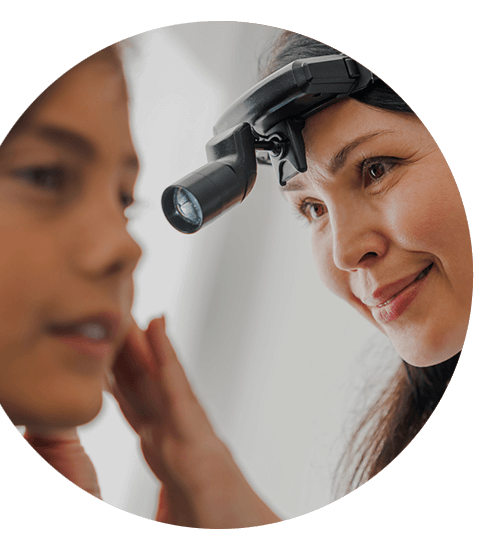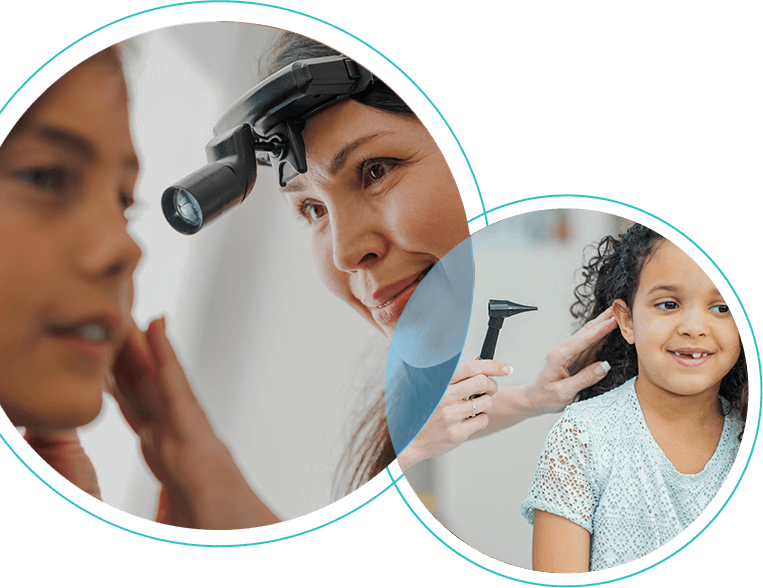Best Hearing San Diego APD Therapy Mission
Best Hearing San Diego understands that every diagnosis and treatment is an individual matter. We also realize the types of struggles that a child deals with while living with untreated APD and we are here to help.
The goal of our comprehensive APD Testing & Treatment Program is to provide parents with the information, tools, and support they need so that “Together, we can help your child achieve their maximum potential!”
Consider us as your ultimate case management, treatment center, and referral source that coordinates and cares for the total needs of your family and your child right now and for life.
APD Symptoms Tree
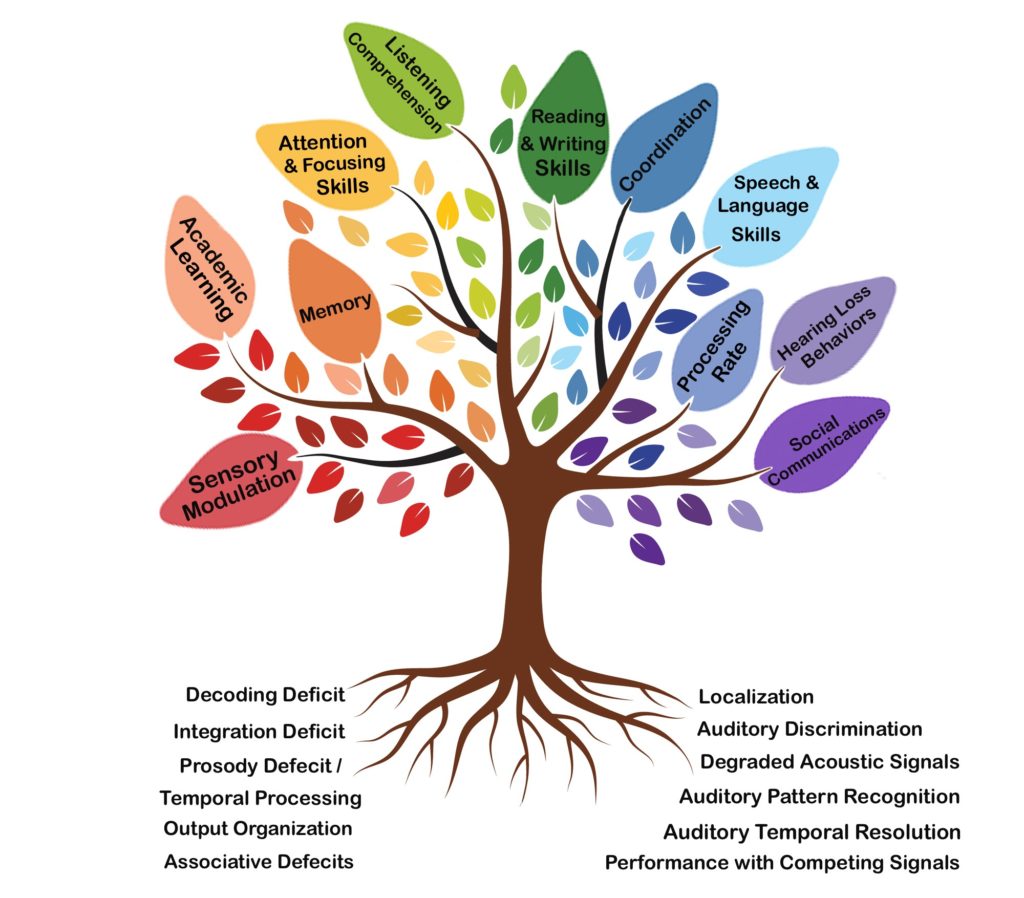
Our APD Symptom Tree outlines the Primary Roots and Secondary Deficit Symptoms of unresolved APD. We believe that by treating these core deficits first, your child’s speech and language, attention and focus, academic learning, social relationships, and self-image will simultaneously improve.
BHSD APD Therapies
CAPDOTS™ CI Therapy Program
A Dichotic Integration Listening Training Program
CAPDOTS™ CI is an at home computer-based program that utilizes time lead-lag, interaural differences (also referred to as DIID-II). It is an auditory training program module used to treat Central Auditory Processing Disorder (CAPD), specifically binaural integration deficits (also referred to as auditory divided attention). CAPDOTS™-Integrated has been used successfully in children and adults with autism, learning disabilities, dyslexia, and closed/traumatic head injuries. The module is based on principles of dichotic listening training and evolved from DIID (Dichotic Interaural Auditory Intensity Differences) training.
CAPDOTS™ CS Therapy Program
A Dichotic Selection/Separation Listening Training Program
CAPDOTS™ CS is an at home computer-based program that is useful for those with binaural separation deficits and who fail or present with atypical interaural symmetries on Competing Sentences type tests. This program presents dichotic stimuli at staggered onset times to favor the weaker (focus) ear.
CAPDOTS Clinical Research
ARIA™ Therapy Program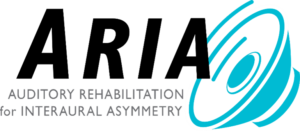
Auditory Rehabilitation for Interaural Asymmetry
ARIA™ is in-clinic dichotic listening therapy to program to treat Amblyaudia, a condition where a child develops a dominant ear that suppresses sound information coming from the other side which creates a “lazy ear.” Amblyaudia (AMB) is a subtype of APD that emerges when listeners fail to normally process competing stimuli presented simultaneously to both ears.
ARIA is an in-clinic training regimen designed to specifically rehabilitate the deficit behind Amblyaudia and can only be done by ARIA™ Certified Audiologists.
ARIA™ Clinical Research
Moncrieff, et al., 2017 Evidence of benefits from ARIA
Auditory Decoding Therapy Program
Auditory Closure skills training, as is found with programs such as Buffalo Model, is a research based auditory training program that focuses on five primary areas of auditory processing deficits to remediate decoding, integration, and output-organization skills. These include phonemic training, speech-in-noise desensitization, phonemic synthesis training, short-term auditory memory, and auditory sequencing skills.
This auditory training program is conducted in-person 2 days a week: 60 minutes per session. The total number of lessons required for completion depends on individualized performance and can vary depending on the number of retraining sessions required to achieve a passing score per lesson. However, it is important that therapy is implemented within clinical protocols of 2 days per week to match the frequency & intensity requirements for targeting developmental improvements in the central auditory neural pathways.
This program is a primary intensive psychoacoustic type of APD therapy designed to remediate this specific type of auditory processing weakness.
Acoustic Pioneer Training Programs
Zoo Caper Skyscraper is a game designed to incrementally improve dichotic listening skills.
It introduces dichotic concepts slowly and allows the player to improve as they play through the game. It uses animal sounds or speech sounds in each ear requiring the listener to correctly identify which animal is making a sound.
Insane Earplane is an easy to learn flying game designed to improve a variety of tonal listening and processing skills. It introduces different tonal activities, such as lateralization, memory, pitched tones and frequency sweeps, and allows the player to improve these skills.
LACE Training Program
LACE directly involves the patient in their own auditory rehabilitation process, whether it’s a new hearing aid user acclimating post-fitti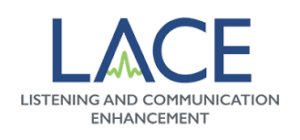 ng or an adult experiencing hearing loss or Auditory Processing Disorder. LACE is easy to use, evidence-based, effective, and can help you develop and maintain richer relationships with your patients.
ng or an adult experiencing hearing loss or Auditory Processing Disorder. LACE is easy to use, evidence-based, effective, and can help you develop and maintain richer relationships with your patients.
With Speech-in-Noise exercises, you’ll practice listening to voices in a noisy environment. Get better at understanding speakers in restaurants, stores, parties, or gatherings. Get better at understanding fast talkers as you practice listening to faster and faster speech. Focus on one voice at a time, even when multiple voices are present. You’ll work on picking up male, female, and children’s voices in these hearing exercises. Develop your cognitive abilities by focusing on target words. You’ll listen to and memorize words to help your memory learn to fill in the gaps in conversation. LACE also offers over 100 communication strategies and tips to incorporate into your daily life.

